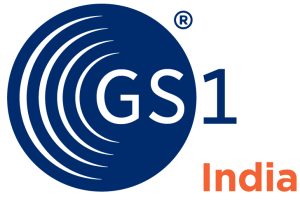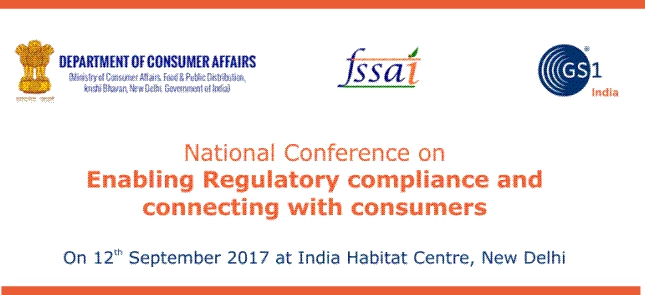Efficient management of product data is essential for businesses to thrive. GS1 India DataKart emerges as a transformative solution, offering a single platform for multiple use cases, changing the way businesses manage and share product information. This blog will help you understand GS1 India DataKart better and explore its myriad benefits and functionalities.
Understanding GS1 India DataKart
What is GS1 India DataKart?
GS1 India DataKart is a cloud-based online service provided by GS1 India, a standards organisation that develops and maintains global standards for business communication. It serves as a repository of information on retail products, offering details of each attribute such as ingredients, product images, Maximum Retail Price (MRP), net content, dimensions, and more. The platform aims to streamline product information management between various departments of brand owners and enable them to share accurate, trusted, and updated Stock Keeping Unit (SKU) data with retailers and e-tailers in a consistent, structured, and standardised manner in real-time.
Importance of GS1 India DataKart
In the context of supply chain management and consumer empowerment, GS1 India DataKart online plays an important role. It serves as a single source of reliable product data, addressing inconsistencies in product information management and simplifying barcoding. The platform, provides customer insights at your fingertips, and offers timely implementation support. By ensuring data accuracy and integrity, GS1 India DataKart enhances traceability and transparency in the supply chain, leading to improved on-shelf availability, fewer returns, and a consistent product experience across platforms.
Uses of DataKart
The GS1 India DataKart serves as a solid solution for businesses, offering a range of uses to enhance efficiency and streamline operations. One key feature is its ability to generate and assign Global Trade Item Numbers (GTINs), which are essential for product barcode numbers, simplifying product identification and tracking. It also enables the generation of barcode images and facilitates the management of product data, allowing businesses to share real-time product changes with multiple retailers and online stores. Moreover, DataKart helps reach out to new retailers and online stores, as well as shoppers, enhancing market reach. It provides timely implementation support and enables listing with kirana stores. Overall, GS1 India DataKart comes in as a versatile platform to manage product data efficiently and improve business processes.
Features and Functionality of GS1 India DataKart
Product Identification
GS1 India DataKart enables accurate and standardised product identification through the generation and assignment of Global Trade Item Numbers (GTINs), which are unique product barcode numbers. By assigning GTINs to every product variant, businesses can ensure that each product is uniquely identified, reducing the risk of confusion and errors in product identification.
Data Accuracy and Integrity
To maintain data accuracy and integrity, GS1 India DataKart implements strong quality control measures. These measures include validation checks and regular updates to ensure that the product information stored in the platform is up-to-date and accurate. This helps businesses avoid miscommunication in the marketplace and ensures that consumers receive reliable product information.
Traceability and Transparency
GS1 India DataKart facilitates traceability and transparency throughout the supply chain by maintaining a comprehensive database of product information. This database allows businesses to track the movement of products from manufacturing to the endconsumer, ensuring compliance with regulatory requirements and enhancing consumer trust.
Advanced features of GS1 India DataKart:
- Enhances visibility across supply chain
- Ensures efficient production planning
- Meets regulatory requirements, including FSSAI recall
- Protects brand integrity by detecting counterfeiting
- Enhances consumer trust through product authentication
- Gives consumers the ability to report fakes
- Matches physical inventory with system inventory
- Enables recall/withdrawals to ensure consumer safety
- Ensures better expiry management with First-Expiry, First-Out (FEFO) principles
- Better inform customers about the raw materials used and their sourcing
- Enables batch and product-level tracking
- Reduces pilferages
DataKart Benefits for Businesses
GS1 India DataKart offers several benefits for businesses, including:
- Enhanced efficiency in operations: By providing a centralised platform for managing product information, GS1 India DataKart helps businesses streamline their processes and reduce manual errors.
- Improved data accuracy: With GS1 India DataKart, businesses can ensure that their product information is accurate and consistent across all platforms, reducing the risk of misinformation and confusion.
- Streamlined processes: GS1 India DataKart simplifies the process of sharing product information with retailers and e-tailers, enabling businesses to reach new markets and expand their customer base.
- Addressing regulatory compliance: GS1 India DataKart helps businesses comply with statutory labelling and marking guidelines, as well as license/certificate validation requirements, ensuring that their products meet regulatory standards.
GS1 DataKart Login and Access
Secure access to GS1 India DataKart is essential for businesses to protect their data and ensure the integrity of their product information. The login process is simple and user-friendly, with additional security features in place to safeguard against unauthorised access. Businesses can access their DataKart account by visiting the GS1 DataKart website and using the login details provided at the time of registration.
Conclusion
GS1 India DataKart is a versatile platform that offers multiple use cases for businesses looking to streamline their operations and enhance transparency in the supply chain. By providing a single source of reliable product data, GS1 India DataKart helps businesses improve efficiency, reduce errors, and enhance consumer trust. It is a valuable tool for any business looking to stay competitive in today's fast-paced retail environment.
Frequently Asked Questions
1. How does GS1 India DataKart contribute to food safety and traceability?
GS1 India DataKart plays a crucial role in food safety and traceability by enabling accurate and standardised product identification. This helps in tracking the movement of food products from farm to fork, ensuring that they meet quality and safety standards.
2. How does GS1 India DataKart ensure the accuracy of product information?
GS1 India DataKart ensures the accuracy of product information through stringent quality control measures. This includes validation checks and regular updates to ensure that the information is up-to-date and accurate.
3. Is GS1 India DataKart compatible with existing systems and technologies?
Yes, GS1 India DataKart is compatible with existing systems and technologies businesses use. It can be easily integrated with ERP systems, POS systems, and other software to enhance data exchange and improve efficiency.








